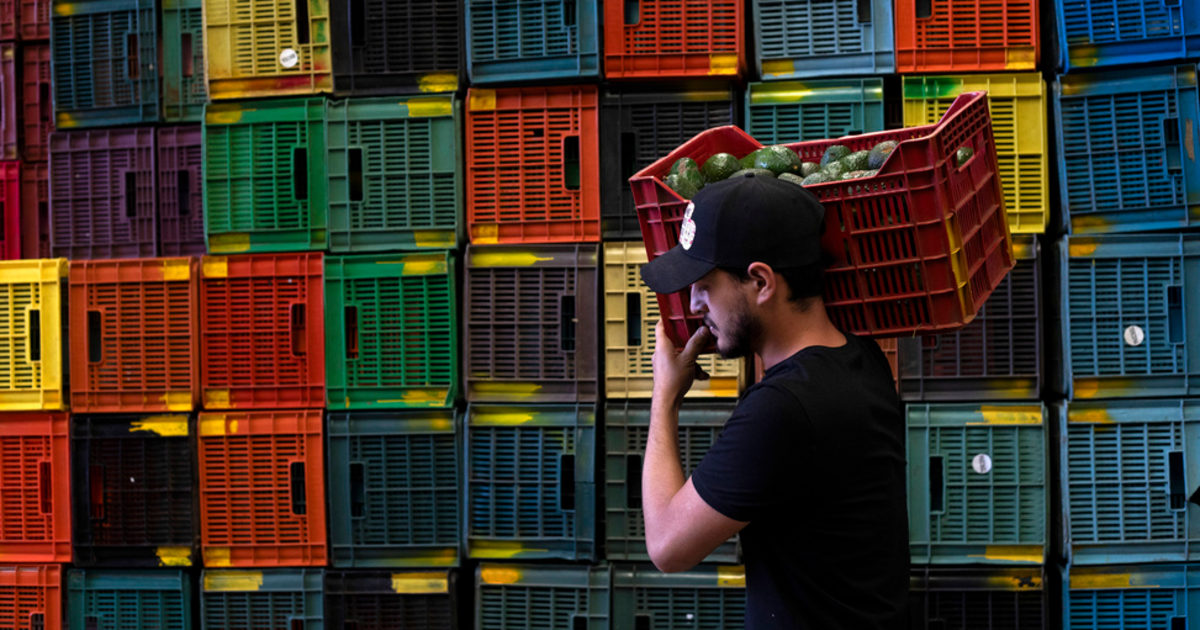By Mark Stevenson -
The Associated Press
The Super Bowl is celebrated this afternoon and there could be problems in the United States preparing guacamole, a star snack for watching sports.
The lack of rain and an increase in temperatures have reduced shipments sent from Mexico.
The western state of
Michoacán, which provides almost 90% of the creamy fruit
for the big game, has suffered from a drier and hotter climate that has reduced the water available in growing areas.
[This is how you can legally bet on the Super Bowl being played this Sunday in Las Vegas]
The state's lakes are literally drying up.
Desperate avocado growers sent tankers to take away the last reserves of water or diverted streams to feed their thirsty trees, sparking conflict.
The state last year had about half the rain it would normally receive, and the water in the reservoirs is around 40% of their capacity, with no rain for several months.
Meanwhile, some farmers are illegally cutting down pine forests that maintain the water system to plant more avocados.
And furthermore, another popular product in the United States—tequila—is beginning to cause problems.
A worker carries a box of avocados at a plant in Uruapan, Michoacán, Mexico, on February 9, 2024. Armando Solis / AP
The global situation is not good for avocados.
Last year's exports from Michoacán for the Super Bowl grew 20%, to 140,000 tons.
This year, that figure could be reduced by 2,000 tons despite an increase in crops, meaning there will be less fruit in the produce sections of American stores.
Alejandro Méndez, Secretary of the Environment in the state, estimates that 30% of Michoacán's avocado plantations suffer from a lack of water.
[Latinos addicted to gambling share their testimonies loaded with guilt and stigma]
The situation cannot continue, and now that consumers are demanding more products obtained in an environmentally friendly way, state authorities are finally developing a sustainability certification program.
In principle, the certification program would cause farmers to improve their use of water and allow them to offer consumers more sustainable avocados and in greater quantities.
Fruit with labels that say something like “this avocado was not grown on deforested land” or “this avocado used water responsibly” will soon arrive in stores.
Officials are still working on a catchy slogan for greener avocados.
But since the initiative comes from the same people who have been making Mexican avocado ads for the Super Bowl for years, there's a good chance they'll find it.
The idea is that the certification labels include a QR code so that the consumer can scan it with their cell phone and see a satellite image of the plantation and the forest associated with the plantation, Méndez said.
[More states approve online sports betting. But experts warn of the social costs]
Since they use more water than pine forests, farmers have to contribute to a fund that guarantees that an area of forest proportional to the cultivated land is preserved.
Méndez points out that this way the customer can be sure that every dollar paid for the avocado is also preserving a piece of the forest.
He estimates that around 70% of plantations established before 2011 are on former farmland and not forests.
But the remaining 30% tarnish the image of others, he lamented.
The decision to take action is not hasty.
The Center for Biological Diversity said Thursday that more than 28,000 people had signed an online petition asking grocery chains to adopt more sustainable policies for sourcing their avocados.
“Many people in Mexico have lost their forests and their water because of the 304 million pounds (138 million kilos) of avocados that we will eat on Super Bowl Sunday,” said Stephanie Feldstein, director of the center for population and sustainability.
“Our obsession with avocados has a horrible hidden cost.
“It is time for grocery chains to take responsibility and ensure that we do not buy avocados grown on deforested land,” he added.
Until now, there wasn't much consumers could do.
There are few certified avocados available on the market throughout the year, and if you want guacamole there is not much else you can use.
That's despite all the news coverage about how people who grow and pack avocados have to pay protection money to drug cartels.
[Fines, sanctions and even jail time: Super Bowl betting winnings must be declared to the IRS]
Julio Santoyo, a frontline activist in Villa Madero, Michoacán, said he is waiting to see how the new certification program is executed.
Until then, this year's Super Bowl, like previous ones, is a blow.
Growing on illegal farms continues unhindered, Santoyo said, and his group estimates that more than half of the avocados consumed around the Super Bowl come from illegal farms.
Until now, he added, the Mexican government had not taken practical measures to certify the sustainable production of avocados.
The crisis is clear in the state, once covered in forests and dotted with lakes.
Lake Cuitzeo, the second largest in Mexico, was once a large expanse of water that reflected the blue sky next to the state capital.
It is now 60% dry, exposing miles of dry land and grass.
And humble Michoacán faces new threats from American consumers: part of the state along with neighboring Jalisco is certified to grow the blue Weber agave tequilana, the only plant from which tequila can be distilled.
Although the agave likes drier, warmer and poorer soils than the avocado, producers are clearing land of native scrub and thorny trees to plant these succulents, whose cylindrical centers will be cooked and fermented.
It's a relatively new problem driven by the growing demand for tequila.
The price for a kilo of agave has risen a lot in the last two years, Méndez said, to almost 35 or 40 pesos (from 2.05 to 2.34 dollars) per kilo, and deforestation is also being seen in that area.

